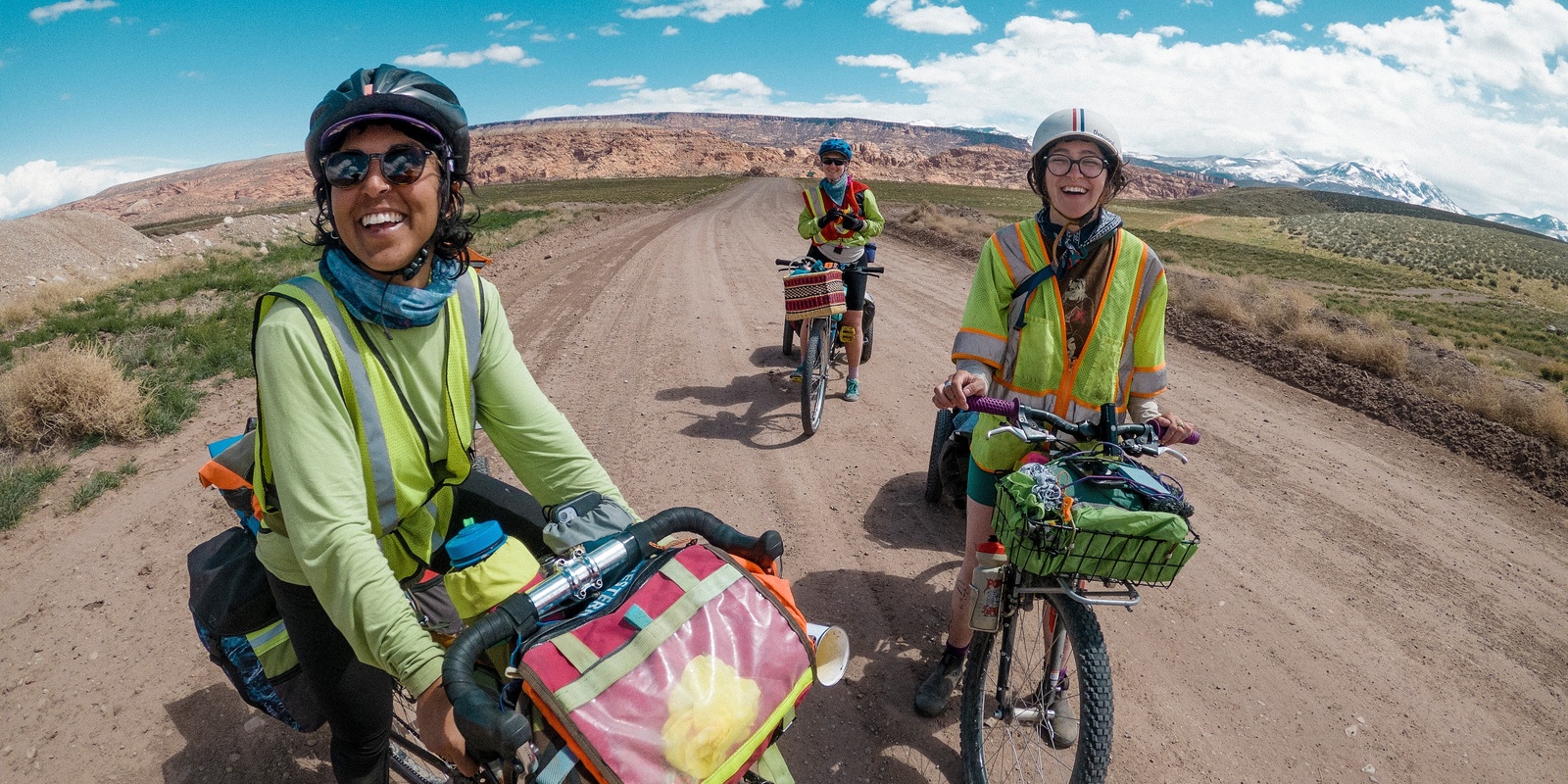Wilderness Medicine Bicycle Expedition - June 2025
Event description
Course Overview:
This intensive week-long course combines the essentials of wilderness and remote first aid with practical strategies for surviving and providing care in extreme urban environments. Drawing on principles of survival medicine, participants will develop skills to respond to emergencies in both remote and disaster-stricken urban settings, where traditional infrastructure may be compromised. Special emphasis will be placed on bicycle-based transport of people and supplies, equipping participants to use bicycles as essential tools in medical care, rescue efforts, and mobility.
Who should join:
- Recreational cyclists who have some biking experience and are looking to improve their touring skills.
- Individuals seeking a moderately challenging biking adventure with varied terrain.
- Cyclists aiming to build endurance and enhance their biking proficiency in preparation for longer tours.
Criteria:
- Terrain: The routes will include varied terrain with some hills and gradual climbs, offering a moderate challenge that helps improve fitness and biking skills.
- Distance: Daily rides will range between 20-40 miles, allowing participants to build endurance and experience longer biking days.
- Path Quality: Routes will feature a mix of paved roads and compacted gravel paths, providing a diverse riding experience and teaching participants how to handle different surfaces.
- Physical Exertion: Moderate physical fitness and endurance are required, making this class suitable for cyclists with a basic level of fitness and a desire to enhance their capabilities.
Core Topics Covered:
- Primary and secondary assessments in remote settings
- Hypothermia, heat illness, and dehydration management
- Fracture stabilization and joint injury care
- Wound care: Cleaning, bandaging, and infection control without medical infrastructure
- Trauma response with limited supplies
- Makeshift wound closure methods (e.g., duct tape, superglue, and cloth strips)
- Managing infections without antibiotics
- Shelter, hygiene, and mental health in urban collapse scenarios
- Techniques for moving patients using bicycles (e.g., makeshift stretchers and cargo bike conversions)
- Hauling essential medical supplies by bike
- Basic bike maintenance and repair to ensure mobility
- Navigating through difficult terrain and disaster zones by bicycle
- Building splints, slings, and tourniquets from found objects
- Water purification and safe hydration strategies
- Emergency signaling and communication methods
- Hands-on simulations involving real-life scenarios: natural disasters, urban breakdowns, and remote rescues
- Role-playing for group decision-making under pressure
- Night operations and limited-light exercises
- Participants will learn DIY bicycle repair techniques, such as brake adjustments, gear tuning, and addressing more complex mechanical issues when no resources are present.
- Tips on pacing, energy management, nutrition and hydration strategies to maintain stamina and enjoy longer rides. Additionally, we will cover techniques for handling hills, climbs, and gravel paths, including shifting gears efficiently, maintaining momentum, and navigating safely off road - using techniques from the National
Wilderness & Remote First Aid Basics
Apocalyptic Urban Medicine
Bicycle Transport in Emergency Response
Improvised and Survival Medicine Skills
Group Scenarios and Simulations
Off Grid Bicycle Maintenance Techniques
Efficient Touring Strategies
Course Format:
- Daily Hands-On Sessions: Practice essential first-aid skills on simulated injuries.
- Field Exercises: Outdoor sessions that mimic real-life remote and urban survival conditions.
- Group Scenarios: Collaborative problem-solving and simulated emergency drills.
What to Bring:
- Personal bike with minimum of 2" tire clearance
- Helmet
- Weather-appropriate outdoor clothing for 1 week in inclement weather
- Moisture-wicking layers (long-sleeve jersey or light jacket)
- Sturdy sneakers, please no clip ins
- Rain jacket or poncho
- Fundamentals
- Spare bicycle tube
- Chain lubricant
- Bike pump
- Enough food / water for the duration of the program - minimum 6 liters water carrying capacity required
- Basic repair kit (spare tube, patch kit, tire levers, multi-tool)
- Water bottles or hydration pack
- Snacks and energy bars
- Personal toiletries
- Identification and insurance information
- Camping gear (shelter, sleeping bag, sleeping pad)
- Lightweight camp stove and cookware
- Headlamp or flashlight with spare batteries
- Personal first aid kit
- Headlamp
- Travel-sized bike lock
- Personal medications
- Extra batteries or portable charger for electronics
- Lightweight camping towel
- Work gloves (optional, but recommended)
- Spare bicycle tube
Certification:
Participants will receive Red Cross Adult & Pediatric CPR + AED, First Aid For Severe Traume (FAST), Naloxone Administration & Wilderness and Remote First Aid certifications valid for two years upon successful completion of this cours.
This course blends outdoor first-aid essentials with innovative solutions for extreme environments, making it ideal for those looking to gain lifesaving skills that transcend conventional boundaries. Whether on a trail, in an urban emergency, or preparing for the unexpected, you'll be equipped to respond with confidence and creativity.
Tickets for good, not greed Humanitix dedicates 100% of profits from booking fees to charity


